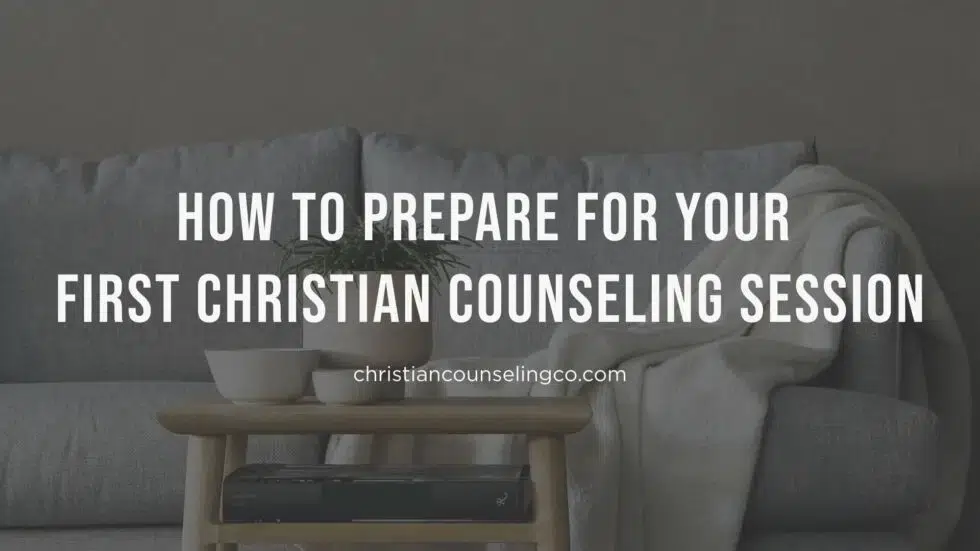Whether it’s your first time going to counseling or have been before, starting with a new therapist can be nerve-wracking. Below are a few tips from one of our therapists for how to prepare for your first Christian counseling session!
‘Will I like my therapist?’
‘Will they like me?’
‘Can they help me reach my goals?’
‘Can I afford this?’
‘Was Darth Vader really his father?’
These are some of the questions that often go through client’s minds.
If you’re feeling nervous, here are 5 things to help you prepare for that first Christian counseling session:
1. Be yourself
- Challenges you are currently facing that you’d like to explore in future sessions
- Changes in your life that prompted seeking counseling
- Things you have tried to get through this
- Information about your background, friends, family, worldview
2. Know what your goals are
3. Clear your schedule
4. Ask questions
- What is your approach to helping people?
- Do you have experience helping people with the concerns I have?
- What is your belief system/worldview?
- Do you create a treatment plan, and if so, will I be a part of creating this with you?
- What will our sessions look like?
5. Give yourself some credit
Take in the words of Brene Brown: “Most people believe vulnerability is weakness. But really, vulnerability is courage. We must ask ourselves…are we willing to show up and be seen?”
What your first Christian counseling session will be like:
Your first session will likely look different than any other session. In this session, you will likely talk practicals, such as billing, scheduling, etc. Your therapist will also likely share a little about themselves. Then it’s your turn to share, as much as you feel comfortable and are able within the timeframe.
Tackling all that can be a lot for one session! Keep this in mind as both you and the therapist get to know each other.
- You are feeling disconnected from the therapist
- The therapist does not have expertise in the area you are asking for help
- Both you and the therapist have different worldviews and values
- You are not making progress (Remember that progress can take time!)
- Sessions often end with you feeling confused or discouraged
- What worked for me in my last counseling experience?
- What did not work for me in my last counseling experience?
- What has changed since my last counseling experience?
Author: Patrick herzer
Patrick is one of our talented Christian counselors who love to come alongside couples to create healthy, long-lasting marriages full of life and happiness.
If you’re interested in counseling with Patrick or another one of our other amazing counselors, click here to view our line-up.






